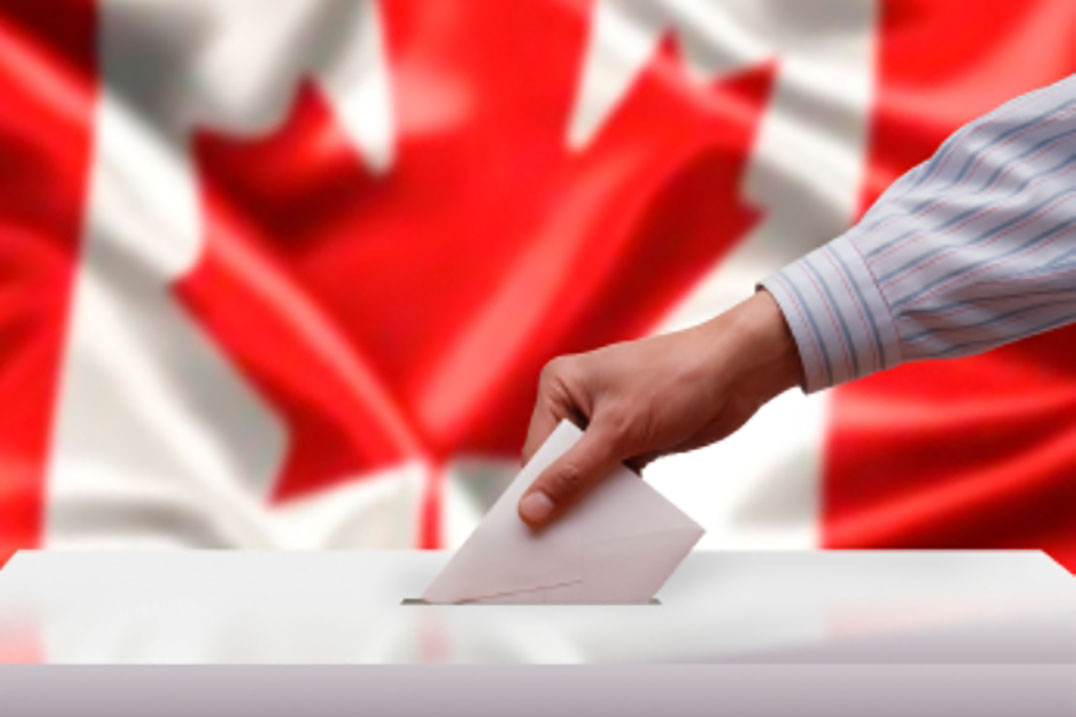Continuing this week, The Expositor is posing another weekly question to each candidate in the Algoma-Manitoulin-Kapuskasing riding and publishing their responses in our newspaper. We have asked that the candidates restrict their answer to a 1,000-word limit. Otherwise, they are free to answer in any way they choose.
As this question is being composed, Canada’s Trade Minister is still negotiating Canada’s place in the planned Trans-Pacific Partnership (TPP) trade agreement in Atlanta, Georgia as part of a dozen nations, including the United States and Japan, that also share Pacific Ocean coastal boundaries.
Canada is looking at new export markets for, primarily, our raw resources (timber, fossil fuels, minerals and ore).
In the process, some domestic industries that have enjoyed protection through previous treaties (like the auto parts and automobile manufacturing sectors whose stability dates from the old Canada-US Auto Pact and several agricultural sectors including the production of fluid milk, eggs and poultry that have enjoyed stability through provincial quotas and related supply management programs) will in all likelihood be subjected to increased offshore competition.
Please explain your party’s position on both the advantages and disadvantages of such a major new trade agreement to Canadians. Please address specifically those industries and their employees which stand to be the ‘losers’ under the terms of the TPP agreement.
 Carol Hughes – NDP
Carol Hughes – NDP
If New Democrats form government after October 19 we will not be bound by this secret agreement that Stephen Harper negotiated behind closed doors. That’s largely because Conservatives used the exact opposite approach to that of the United States to explain the Trans-Pacific Partnership (TPP). In America, the negotiations were far more transparent and included briefings for politicians by the chief negotiator. That helped legislators understand the benefits, risks, and costs associated with the TPP.
For Canadian legislators, the secrecy of Stephen Harper has made it difficult to determine whether the TPP is as good a deal as we could hope for or if we conceded too much. We are finding out about it much in the same way everyone else is–through the news. While it is beneficial to be able to hear about the deal in that way, it is not an appropriate briefing to base a political position on.
That said, there are significant areas of concern in the TPP. We are well within our rights to be skeptical about a deal that may give away more than it contributes to our economy. Immediate concerns are that we may be siphoning off the last strong bastion of our manufacturing sector and increasing our economic reliance on resource extraction and export. For how long have we sought to develop our economy beyond resource extraction? The old debates would pose the question, will we always be hewers of wood and drawers of water? Under Stephen Harper the answer has been a resounding yes. New Democrats would rather increase our manufacturing capacity, not hobble it.
One certainty is that the deal is bad for supply management in the dairy and poultry industries. The government has admitted as much and put aside billions of dollars for the producers that will be affected. How this plays out in our region is just a guess at this point, but farmers are worried.
An over reliance on imported food exposes us if we are ever faced with a crisis. We can’t assume that energy prices will always favour the current model of food distribution and that geo-political tensions won’t interfere. This is the polar opposite of eating local and let’s remember that it’s easier to protect what we have in a prudent way than to build it up again.
Manufacturing will be hit by the TPP and the Conservative record to date is not stellar on that front. The Conservatives have brought in policies that have cost Canada 400,000 manufacturing jobs since the recession in 2008. Included in that sum are 43,000 in Canada’s auto industry and it is auto jobs that are in the cross-hairs again with the TPP. These are good jobs in Ontario that contribute to federal, provincial, and municipal economies. Auto workers are a boon to their communities, they buy houses and support countless small businesses. The spin-off losses will be disastrous for a part of the country that has been reeling since 2008.
The consequences for Canadian parts manufacturers will also be stark. The new regulations for domestic content, the rules that stipulate how much of a vehicle or parts have to be made within the TPP in order to be sold within the region tariff-free, will be cut. It amounts to an incentive to source the cheapest parts possible like what is happening with Japanese cars that are including more and more parts from China.
Lost manufacturing jobs won’t diversify our economy. It actually makes matters worse in moments with a weak dollar like we are experiencing now. Despite the jobs lost since 2008, the auto sector remains one of our last large exporters and Unifor, the union represents auto workers, predicts that another 20,000 jobs could be lost under the TPP.
The TPP will also drive up the cost of prescriptions. With a large population of seniors here in the North, this is nothing but troublesome. Stephen Harper’s trade deals with Europe (CETA) and this (TPP) have both increased the patent terms for brand name drugs, which only keeps cheaper generics off the market and forces Canadians to pay more for their prescriptions. This explains why we pay the second highest prices for prescription drugs in the world. New Democrats are proposing a number of measures that will help reduce the costs of prescription drugs in this election. Now, with trade agreements guaranteeing they will rise we should be doing everything we can–like bulk purchasing and introducing pharmacare–to keep costs in check.
Canadians should also be concerned the dispute settlement mechanisms, which under the NAFTA have amounted to us refusing to defend our interests at the tribunal and merely cutting cheques. The TPP is being called NAFTA on steroids and a big part of that is how companies and corporations will be able to sue governments for frustrating their business ventures. Increasingly corporations have more rights and less responsibilities under these deals.
There is just too much unknown to make a definitive pronouncement on this deal and that is by design. The irony of the promise of transparency from Stephen Harper back in 2006 is painted all over these negotiations. He has gone so far as to be held in contempt of parliament when he had a minority government and the secrecy only got worse once he secured a majority. It is impossible to believe him on much and this deal is so big and far-reaching that now isn’t the time to start.
 Calvin Orok – Green Party
Calvin Orok – Green Party
The Trans-Pacific Partnership (TPP) is the latest in a series of trade agreements made by the party in power since the last election. It’s the largest one since the European agreement. On October 5, 2015, the day the TPP deal was announced, Jim Stanford, an economist with Unifor, rightly pointed out that, in spite of all of the trade agreements made by the Harper cabinet and their regular boasting about that number, it doesn’t mean that more trade agreements have benefited Canada. In fact, the opposite is true.
Think of NAFTA, negotiated by the Mulroney government. The loss of major manufacturing to Mexican plants will not return, because even though the Canadian Dollar has now decreased to 75 cents of the value of the US dollar, the Mexican Peso has decreased contemporaneously. Cities like St. Thomas, Ontario will tell you that once a major company like Ford closes an auto plant, it is very unlikely it will ever re-open. They are too big and expensive to restart.
The loss of tariffs in many industries has already pushed many of our smallest factories off-shore. The bicycle industry is one example–we no longer have a major bicycle manufacturer in Canada. When there once was a tariff on foreign bicycles, in the last century, established companies like Sekine from Japan came to Canada to set up manufacturing here when the demographics of a baby boom pushed up Canadian bicycle sales. Sekine and other quality Canadian manufacturers bought their parts from around the world, but they manufactured them in Canada. The Sekine plant was actually partnered with a First Nation who supplied talented workers in Manitoba. The same thing would not happen today. If the same trend happens next with automobiles and trucks, why would Honda or Toyota bring a new car plant here? Why should they keep the current ones if it is cheaper to build a new plant elsewhere?
In my opinion, big sweeping changes like TPP will benefit larger companies who can adapt and often hurt smaller producers who cannot. We have seen this pattern recently with the Canadian Wheat Board (CWB). The government ignored their own rules with the closing of the CWB and ignored the protests of many farmers. At the current time, wheat farmers are in court trying to get paid for their assets lost in dismantling of the Canadian Wheat Board, including 3,000 rail cars, sold off in a single sales agreement. Clearly, the government did not act in the best interest of the smallest producers—they acted for the benefit of the largest producers. And the decision to close the CWB was ideological. The TPP is just the latest example of this trend. It is also.
What will happen next? Jim Stanford has stated that the TPP will probably enforce our stereotypical role as a supplier of raw products, minerals and lumber to the rest of the world, rather than becoming the purveyors of value added products. Canada does not sell many cars to the world market, compared to how many we buy. But, TPP may increase the number of car imports.
In this deal, there is going to be a reduction of tariffs on Japanese made cars, but also a reversal or snap-back provision possible if this hurts Canadian auto sales, according to the Globe and Mail. This suggests to me that there is really no idea what will happen as this trade agreement proceeds and it may be true that one of the major industries negatively affected will be Canadian auto manufacturing. The auto sector will be no longer as well protected, because the percentage of Canadian made parts will be reduced under the TPP.
Food producers such as dairy and poultry farmers will find there is greater competition from other countries under TPP and the European trade deal, which was another mammoth trade deal engineered by the current party in power. (Look for more cows and tractors visiting a Parliament Hill near you when they take effect.) The smaller farmers’ only real friends are their customers, you and me, because knowledgeable Canadians will always insist on buying local food and many foreign foods will be suspect, for example if they have been genetically modified. Europe is more ahead of Canada on this issue.
On the positive side, seafood producers in Canada may actually find new markets in this deal, with countries or states who have suffered environmental catastrophes like Japan (nuclear) or Louisiana (oil spill in Gulf). But this would probably happen as a matter of course without a massive new trade deal. We have high quality food in Canada, including seafood.
As citizens, think globally and buy locally. Support small businesses. Look for Canadian labels–which is becoming much harder to do, but still possible. And if you can, resist buying cheaper food “dumped” into the Canadian marketplace from foreign corporate farms and buy your food from local farmers, dairies and suppliers after this deal comes into effect.
It is my hope that we can always buy Canadian-made quality products and that small and medium sized farms will still find it profitable to stay in business and work without fear of losing their markets.
I hope in this election that Canada votes for more Green Members of Parliament like Elizabeth May, who has been opposed to the TPP from the start. You can send a message to the big power parties by voting Green in this election and increasing our percentage of the national vote.
In Kevin Page’s new book, ‘Unaccountable,’ written after his time as the first Parliamentary Budget Officer under the current prime minister, Mr. Page wrote this:
“The 2015 federal election represents a critical time for the restoration of trust, debate and scrutiny within Canada. Most importantly, it represents a critical time to restore the power of the purse to members of the House of Commons where it rightly belongs.”

André Robichaud – Conservative
The economy is the number one priority for the Conservative party, and we know that this free trade deal is a tremendous opportunity for Canada. We’re at the negotiating table working on a deal that is in Canada’s long-term economic interests.
This agreement has been reached almost 28 years to the day after Canada concluded our first-ever free-trade agreement with another country, the United States. The TPP is the largest free-trade agreement in history, represented by a twelve-nation market of nearly 800 million customers.
A re-elected Conservative government will ratify and implement this historic agreement. As with all trade agreements, TPP will be subject to full Parliamentary review and approval before it is passed and brought into force.
“In a global economy, there is no more certain way to secure long-term economic growth and prosperity and to protect and create good, well-paying jobs for Canadians than by expanding markets for job-creating Canadian businesses,” Prime Minister Stephen Harper said.
The TPP will protect and create Canadian jobs, and grow every sector of our economy by giving Canadian businesses access to some of the most dynamic markets in the world.
Our 11 partner countries have a combined GDP of nearly $30 trillion–that’s 14 times the size of the Canadian economy.
The TPP gives us access to new markets where we don’t currently have free-trade agreements–like Japan, the world’s third largest economy–and it strengthens our partnership with our NAFTA partners.
Every sector and region of the Canadian economy will benefit from the TPP, including the auto sector, agriculture and our supply-managed agricultural sectors.
The TPP will improve market access for Ontario’s world-class services companies, including in construction, transport, research and development, legal, engineering and architectural services, computer services, environmental services, mining-related services, and energy distribution.
The TPP means more good jobs in Ontario by removing tariffs and other trade barriers on key Ontario exports, such as: aluminum, iron, steel, nickel and petroleum, chemicals and plastic, vehicle and vehicle parts, industrial machinery, headphones, loudspeakers and microphones, monitors and projectors, baked goods, pet food, fresh and frozen vegetables, icewine and whisky, canola oil, apples, cherries, pork, beef, chocolate and other sugar confectionery.
This historic trade agreement will benefit workers in all these sectors and bolster Canada’s strategic position in the global economy and the fast growing Asia-Pacific.
Concerning the auto sector, the TPP creates the opportunity for more Canadian cars and parts to be exported. Canadians build–right here at home–and then export over six times the number of Japanese cars than we import from Japan itself. The auto package will position Canadian parts and car makers to continue to succeed, protecting and creating jobs in Canada. Support from parts makers has been strong.
Reaction from stakeholders was immediate and positive. The Canadian Manufacturers and Exporters (CME) noted: “TPP will give better access to a market of more than 800 million consumers to Canada’s small and medium sized companies, will benefit Canada’s manufacturing and exporting companies and the Canadian economy as a whole.”
The Forest Products Association of Canada stated: “The forest products industry in Canada has always been one of the country’s major exporters and this agreement is an historic opportunity to improve access to rapidly growing markets in the Asia Pacific.”
The Dairy Farmers of Canada (DFC) stated: “The government has clearly understood the importance of supply management dairy farms in rural Canada and the economic activities they generate.”
Canada Beef: “…this deal could be tremendous for the growth of exports to nations, like Japan in particular.”
The Canadian Agri-Food Trade Alliance stated: “Whether you are a farm family who depends on world markets, a processor, exporter, or live in a community supported by agriculture or food processing, improved access to TPP markets bodes well for a stable and prosperous future.”
Aluminum Association of Canada: “This deal provides privileged access to growing markets such as Malaysia and Vietnam, creating a strong potential for Canadian aluminum.”
Food and Consumer Products Association: “For companies in Canada, the TPP is expected to open doors and provide opportunity to grow beyond our borders, with increased and privileged market access for Canadian goods, services and investments in one of the world’s most dynamic economic regions.”
Soy Canada: “The TPP is a very good agreement for Canada’s soybean sector.”
Egg Farmers of Canada (EFC): “On behalf of the Canadian egg industry, Egg Farmers of Canada (EFC) appreciates the work of the Government for its part in reaching a 12-country Trans-Pacific Partnership deal…Canada’s participation in the Trans-Pacific Partnership brings many benefits to the sector and the Canadian economy.”
Mining Association of Canada: “NAFTA, free trade agreements with Chile, Peru, Colombia, and other countries in Latin America, Africa, and Asia have all helped to increase Canadian exports and investment, supporting jobs for Canadians here and abroad. TPP, representing such a massive trade block, including critical emerging markets, is a trading partnership Canada must not risk being left out of.”
Canadian Meat Council: “The TPP will allow Canada’s meat industry to maintain market access parity with other signatories and will allow the livestock and meat sector to expand production and profitability for Canadian farmers. It will strengthen exports and international competitiveness for the meat industry, and increase jobs and economic growth for Canadians.”
Unlike the Liberals who have almost no record on trade, or the NDP who have vowed to rip up the deal, Conservatives know that Canadian exporters can compete with the best the world has to offer, and win. Canada’s Conservative governments will continue to open up new markets for Canadian businesses and workers. With the successful conclusion of the Trans-Pacific Partnership agreement, our Conservative Government has increased Canadian free-trade agreements from five to 51 countries.
This election is about choosing a government to manage and protect our economy. Prime Minister Harper has a positive plan for the next four years, a plan that includes opening up new markets for Canadian exports. Our plan will lower taxes, maintain our balanced budgets, and create jobs.
 Heather Wilson – Liberal
Heather Wilson – Liberal
The Liberal Party of Canada strongly supports free trade and we know this is how we open markets to Canadian goods and services, grow Canadian businesses, create good-paying jobs, and provide choice and lower prices to Canadian consumers. The Trans-Pacific Partnership stands to remove trade barriers, widely expand free trade for Canada, and increase opportunities for our middle class and those working hard to join it.
The winners in free trade markets are multi-faceted in that businesses have larger markets in which to sell their goods and services, jobs are created and consumers have greater choice. Producers have to be competitive in order to market their goods and services which can be challenging but this can be good for consumers as a greater choice is available and goods can be cheaper. The negative side is that many markets do not have the same standards as countries like Canada so it is not a level playing field. Countries that do not have the same standard of wages or worker protection can produce goods cheaper. However, Canadian companies are innovative and quality goods and services are wanted all over the world. With so many winners and losers it is a delicate balance that the federal government has to try and negotiate.
Liberals will take a responsible approach to thoroughly examining the Trans-Pacific Partnership. The Harper Conservatives have failed to be transparent through the entirety of the negotiations–especially in regards to what Canada is conceding in order to be accepted into this partnership. This is not something new for this government so we should not be surprised but we can demand better.
The government has an obligation to be open and honest about the negotiation process, and immediately share all the details of any agreement. Canadians deserve to know what impacts this agreement will have on different industries across our country. The federal government must keep its word and defend Canadian interests during the TPP’s ratification process–which includes defending supply management, our auto sector, and Canadian manufacturers across the country. We cannot make a decision about the pros and cons of a deal we know so little about.
Trade is vital for our economy. It opens markets, grows Canadian businesses, and creates good-paying middle class jobs–jobs that pay wages that are 50 percent higher than industries that are not export intensive. That is good news for the middle class and the communities they call home.
Stephen Harper’s approach to trade, however, has failed. His Conservative government has recorded the largest trade deficit in Canadian history, and Canadians are paying the price in lost job opportunities. While Stephen Harper may sign trade deals, he walks away from partnering with businesses and entrepreneurs to ensure they can succeed in new markets and create wealth and jobs for Canadians.
We will carefully consider all trade opportunities currently open to Canada, and explore deeper trade relationships with emerging and established markets, including China and India. We will develop a new export promotion strategy that will help businesses take advantage of new trade agreements.
The TPP covers many industries but it is still unclear how this riding would be directly affected. Since many of the industries included in the TPP are not in the riding, auto parts manufacturing for example, it does not mean AMK would not be negatively or positively affected. The TPP would eliminate or reduce tariffs on a number of products including pork, fruits, wines and spirits, canola, barley, machinery, minerals and forestry products. For example, the beef industry expects to see exports triple to Japan, with a multi-year phase-out in tariffs there from 39 percent to nine percent. The beef industry in the many parts of AMK are viable and expanding so it is possible that beef farmers here could benefit greatly.
Canada’s farmers and ranchers are the foundation of our food sector. The work that they do to feed Canada and the world is vital, but government support is needed to help them with challenges ranging from transportation to water management to research and food safety. The dairy farmers in AMK have a long and successful history but not one that is without frustration. We are still getting the details but it would appear farmers will be compensated for losses under the TPP and the recent Canada-EU deal, through a multi-billion dollar series of programs. The most important will see farmers paid up-front annually over 10 years to maintain 100 percent income protection, and the program would taper off the five following years.
I have talked to farmers in Massey and they are concerned about any trade deal where their interest is not protected and rightly so. I grew up on a dairy farm and I know how hard farmers work to put food on the tables for Canadians. We do not want to become a country dependent on others for our food production.
To attract investment and create good jobs in food processing, we will invest to provide technical and marketing assistance to help food processors develop new value-added products that reflect changing tastes and market opportunities. To support innovation in the agricultural sector, we will invest an in agricultural research. To better allocate research funding, we will establish a transparent process that involves food producers. We will invest in the Canadian Food Inspection Agency for more food safety inspections of domestic and imported foods.
We will continue to defend Canadian interests during trade negotiations, including supply management.
We will also work with provinces, territories, and other willing partners, to better address water and soil conservation and development issues, including investments in appropriate infrastructure.
Harper and the Conservatives put the interests of big business before that of consumers and small business. Mulcair and the NDP have said that they would not support the TPP thereby denying any potential for economic growth, jobs and consumer satisfaction. Only a Liberal government will carefully negotiate the balance that is required to create trade balance and jobs, protect Canadian interests and ensure consumer satisfaction.






